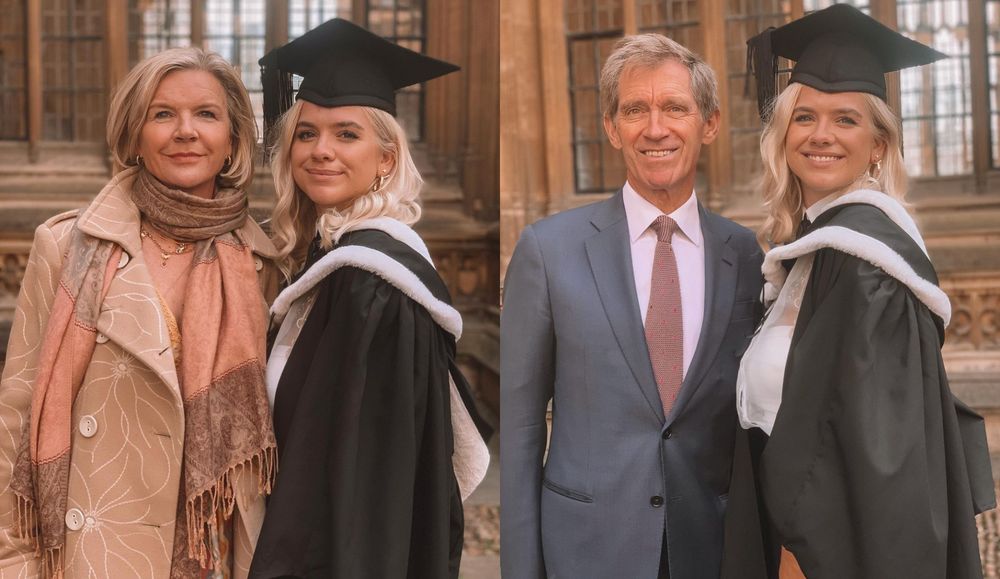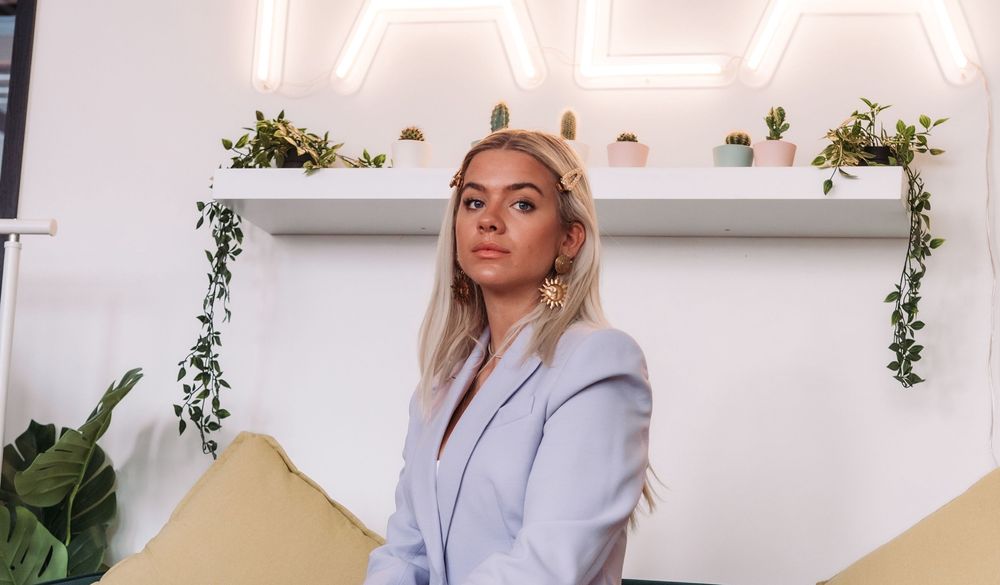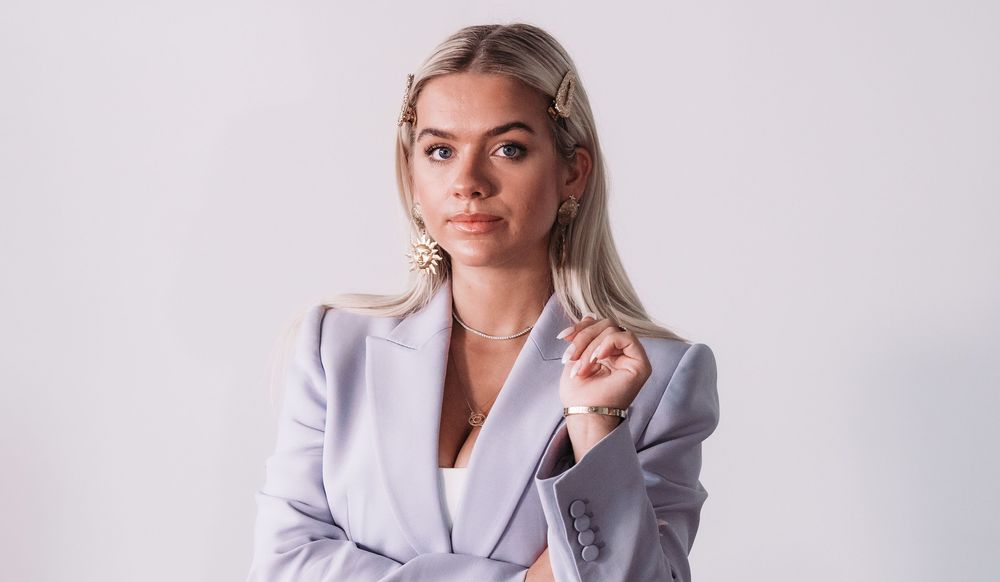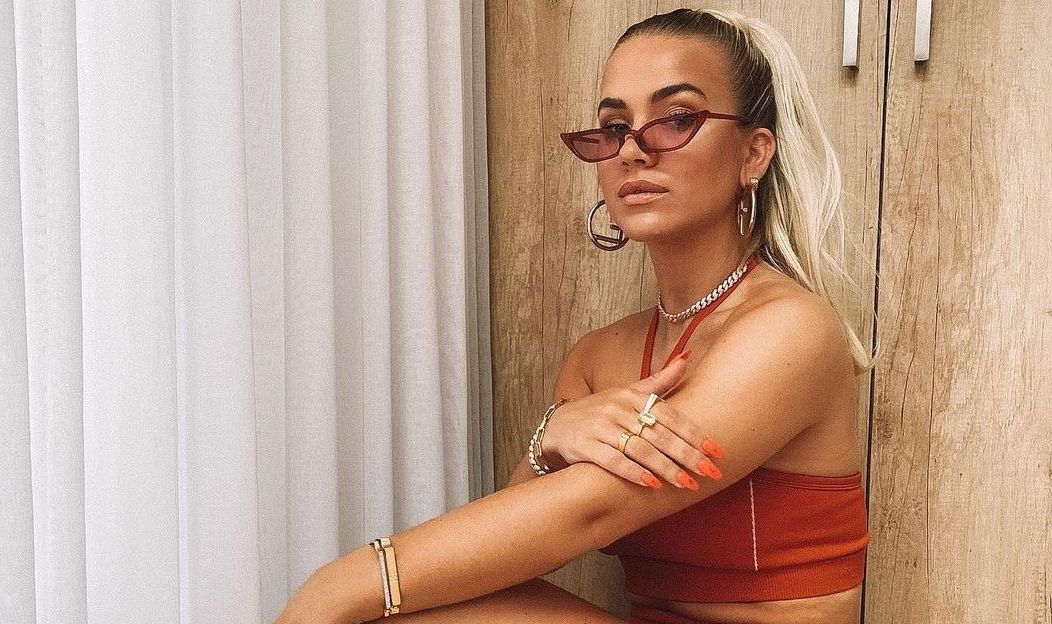Grace Beverley is an English entrepreneur known for launching pioneering fitness brands TALA and Shreddy. The self-made CEO has earned numerous honors for her stirring success, including appearing in Forbes’ 30 under 30 Retail and E-commerce list of 2020. Beverley launched her first company as a first-year student at St. Peter’s College, Oxford.
Beverley’s success came from identifying a niche and marketing her business via social media. So far, Beverley has 1 million followers on Instagram and over 570K subscribers on her self-titled YouTube page. Grace insists that she is not a social media influencer, but she admits that the internet has helped grow her brands’ popularity.
This piece will look at Grace’s controversial upbringing, her business empire, her struggle against sexism, and her love life.
Grace has faced unfair criticism for reportedly coming from a wealthy background

Grace Margaret Beverley was born on 16th February 1997 in London, England, to Victoria and Peter. She grew up alongside one younger and two older sisters. Grace attended St. Paul’s Girls’ School before joining St. Peter’s College, Oxford, to study music as an undergraduate.
Beverley’s upbringing has been a source of controversy ever since she launched her first business. Grace insists that she is self-sponsored, but many reports claim that she has benefited from her privileged background. The Sun reports that her mom, Victoria, is a senior curator at the Victoria and Albert Museum, and her dad, Peter, is the head of a business consultancy firm.
The report also peddles a rumor that Grace’s grandparents are wealthy. Grace doesn’t deny her privilege, but she perseveres with her assertion that her businesses didn’t benefit from external investment. “I don’t believe it’s for me to sit here and be like, ‘No, I’m not privileged,’” she told BBC. “But I’ve done this myself – the businesses have been started from scratch by myself. That doesn’t mean I am not incredibly privileged and fortunate in other ways, like in terms of my education.”
Grace’s heritage has dominated tabloid headlines for the past couple of years. She first spoke out against the reports via a series of tweets posted in July 2018. Again, she acknowledged her privilege but pointed to hard work as the reason for her success. “Am extremely aware of my privilege and will always to acknowledge it,” she wrote, “but I also have worked really fucking hard and been financially independent a lot before social media.”
Beverley’s success has come with its fair share of suffering as she’s had to dedicate countless hours to building her brand. It’s easier now that she has a growing team, but during her college days, she suffered a lot, especially in terms of mental health. She spoke about it via social media, but it didn’t help with her own struggle. “I realized that as much as I was a huge advocate for talking about mental health and removing stigma, I actually didn’t apply that to myself,” she told BBC.
Grace’s motivation to launch Shreddy was to earn some money on the side, but the brand rapidly morphed into a business empire

Grace launched Shreddy because she wanted to sell a straight-forward product that helped people achieve their fitness goals. Following several months of exponential growth, Grace introduced physical gym accessories branded B_ND. Much to the surprise of Grace and her team, the demand for her products kept growing.
Beverley decided to strike while the iron was hot by introducing TALA fitness wear. This time, she had a clear business strategy that involved producing cheap, trendy, and environmentally sustainable fitness wear. The plan worked, and within six months of the launch, Grace and her team struggled to keep up with the overwhelming orders. Grace told CEO Today Magazine:
“I stopped buying fast fashion and tried to look for more sustainable alternatives, but they were all around £100 for a pair of leggings, which made them completely inaccessible. We set out looking into the manufacturing of sustainable high-performance clothing, and in the year before launch we worked out that if we took the recycled content from 100% to 92%, we could just about sell the leggings at a competitive £40.”
Affordability meant that Beverley’s fledgling company could go up against established companies in the fitness world. Needless to say, Grace and her team couldn’t match the manufacturing power, the reach, or the profits of companies such as Nike, but the big corporations certainly took notice.
Another important reason why people resonated with Grace’s products was that inclusivity formed part of the brand from the outset. Large corporations in the fitness world face backlash for failing to promote body inclusivity, and when they attempt to do so, they receive criticism for allegedly promoting unhealthy lifestyles. Grace talked to NewStatesman about TALA’s approach to inclusivity:
“They are all welcome and they should come on our page and feel welcome no matter what they look like, no matter what they do, no matter where they’re from. We really tried to make it something that never says the words ‘body positivity’, never says ‘inclusivity’, apart from when we launched and we were like, ‘We’re setting a standard for ourselves, and for everyone else.’”
One of Grace’s main obstacles is that most people in the sexist business world refuse to treat her as a CEO

To Grace’s dismay, a young, stylish, 23-year-old female Briton with a sizeable social media following doesn’t fit the traditional CEO mold. Grace stated in a YouTube video titled, the truth about being a young woman in business, that her struggle with sexism started soon after launching Shreddy. Despite being the founder and CEO of the brand, she felt isolated in meetings, as industry experts viewed her as a model rather than a mogul. She said:
“People instantly assume that you are the face of a brand and you’ve never actually done anything and that’s your job, and you just happen to have made a lot of sales on the side of that. It’s not the case for me. My day to day job is not that. I have been doing this. I’ve sat in so many meetings where I literally haven’t been addressed and when I have, it’s kind of as like the ‘talent.’”
Grace’s perception as a social media influencer is part of the reason why some industry players struggle to see her as a CEO. Over the past couple of years, she has tried to distance herself from influencer culture. Social media plays a role in popularizing her brands, but unfortunately, it has affected her standing as a business guru. She told NewStatesman:
“I think it’s difficult because I started at 18 and now I’m 23, and so much changes between those ages in anyone’s life… I’ve had a huge rebound from all that influencer stuff because I’ve been like, ‘People won’t take me seriously, people won’t take that I actually know a lot more about business than I ever have about fitness.”
Over the past year, Grace has taken a step back from social media. She hasn’t posted on YouTube in nearly a year and is satisfied with the occasional Instagram post. The move has allowed her to put more focus on entrepreneurship, and it has helped her adopt a more sustainable lifestyle. “I realized that actually I didn’t have any place in my life that I wanted to be highly publicized,” she told Cherwell. “So I think for everyone, it should very much just be about making sustainable choices, especially in areas that you maintain.”
Grace and her long-term boyfriend chose to keep their relationship off the limelight

In a rare update about her personal life, Grace revealed that she was very happy with her relationship. In a July 2019 video titled Life Update Q&A, Grace stated that she and her boyfriend separated after high school to grow individually. They had dated for four years and were reluctant about joining University as a couple. Beverley revealed that they eventually got back together:
“So, maybe now is the time to grow individually since we’ve been together since we’ve been like 15. We tried that and it didn’t work. It did and we grew a lot as people and we thankfully grew in the right direction and our relationship is fucking fantastic.”
Grace and her boyfriend opted to keep their relationship off social media. Beverley knew that having a public relationship had benefits in terms of social media traffic, but she’d learned from experience that it is not worth it. She explained:
“Relationships shouldn’t have to be kept off social media completely and they shouldn’t be on social media completely. It’s not a YouTube relationship and it never will be and that’s kind of been my priority. Just because my time with my boyfriend is my time away from work and my time away from all of that and it’s very easy to get carried away with what people like to see.”
Beverley posted the video nearly a year and a half-ago, so it’s unclear whether her relationship status has changed. Her relationship isn’t on social media, so we have to assume that she is still happy in her relationship.